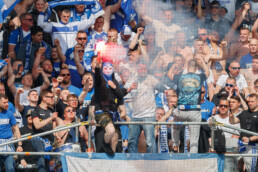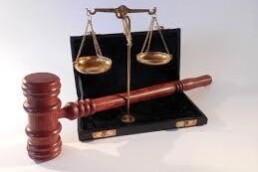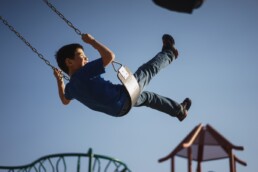LEGAL
by attorney at law Patrick Burkhard
Video recordings of football hooligans in criminal proceedings

In the context of the World Cup, there were reports of riots and football chaos. This issue is also a well-known problem in Switzerland: If a football match is classified as a high-risk match, a large police contingent can be expected to keep the football chaots in check. But how can the hooligans be identified if they are masked and confront the police?
The inside of the stadium is regularly under video surveillance and masking is forbidden. This means that there would be video recordings of the hooligans, which would enable them to be identified on the basis of their clothing. But may these video recordings also be used as evidence? The Federal Supreme Court recently dealt with this question (6B_1061/2020 of 26 October 2022).
The football match took place in Basel and led to riots between violent football fans and the police. People were injured and vehicles damaged. The charges included a conviction for breach of the peace and violence and threats against officers and authorities. The accused defended himself before the Federal Court against the use of the recordings made of him in the stadium, which led to his identification. The police had compared the stature and clothing of the accused, who was not wearing a mask, in the stadium with the footage of the violent mob and recognised the accused. According to the accused, these recordings had been made at a time when there were no concrete indications of a criminal offence and could not be used as evidence.
In its decision, the Federal Supreme Court stated that the police law of the canton of Basel-Stadt contained a corresponding provision that was tailored to this case. The purpose of this regulation was precisely to allow video surveillance at public events in order to be able to detect and clear up possible offences more easily (§58 para. 1 PolG/BS). Since the video recordings were thus made legally, they could also be used in criminal proceedings.
The Federal Court finally sentenced the accused to a conditional fine. In conclusion, it can be said that football hooligans (in Basel, after all) must be prepared for the authorities to consult the stadium recordings in the event of riots after a football match and to look for matches between hooded and non-masked football fans. It is to be hoped that this decision will somewhat curb this vexed issue.








